Mary Anne Yarde's Blog: The Coffee Pot Book Club , page 77
August 17, 2020
#BookReview — Astrolabe by Jay S. Hipkins #HistoricalFiction @CraigHipkins
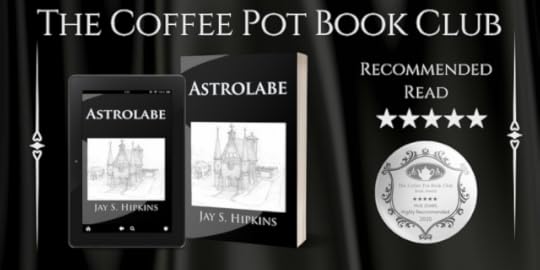
Astrolabe
By Jay S. Hipkins
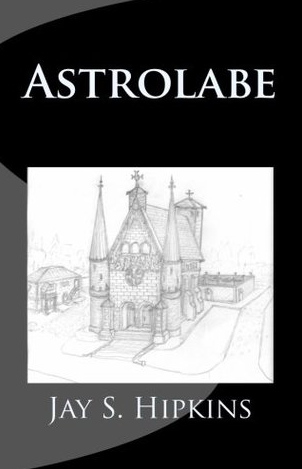
Astrolabe is the story of a young man who came from a scholarly family. His mother and father were two of the most noted people in early twelfth-century Paris. This novel delves into his troubled youth and is a completely fictional account of a character we know very little about.
Anyone who has studied the middle ages is familiar with the story of Abelard and Heloise. For a couple that lived over nine hundred years ago, we know a surprising amount of information about this famous couple. However, what ever happened to Astrolabe, the child of their love – the cause of their “misfortunes?” The answer is – no one really knows.
Other than a few scant references to him, he disappeared completely in the annals of history. He may or may not have joined a religious order, according to one later account of him, but other than that, we know absolutely nothing about the mysterious child of Abelard and Heloise.
Before you now is his story as I have imagined it. The action within this novel takes place in and around Paris, France sometime in the mid-1130’s.

“It matters nothing to me whether or not you remember my name…”
Astrolabe had grown up in the shadow of his parents. Parents whom he could not remember and whom he only communicated with via letters – but everyone else had heard of them, for their love had been a scandal. They were sinners, noble ones, but sinners all the same.
Determined to find a purpose to his life, Astrolabe must decide what kind of man he wants to become. Does he want to become like his friend, Robert de Langton, who spends his nights in a house of ill repute, indulging in the pleasures of the flesh? Or perhaps he could become like his cousin, Vassadelle, who gave alms to the poor every Sunday but refused to see the poverty around her on any other day of the week.
But Astrolabe is neither his friend nor his cousin. As both Robert and Vassadelle lose their way, Astrolabe finds his in the most unexpected of places…
Astrolabe by Jay S. Hipkins is the story of one young man’s quest to find a place for himself in a world that is as beautifully confusing, as it is enlightening.
I found the portrayal of Astrolabe endlessly fascinating. Although Astrolabe often mocks the scholars, he is a man of understanding and a seeker of knowledge. He pursues answers the way Aristotle did – he at first observes and then applies abstract reasoning to back up his conclusion. Astrolabe sees every detail in the world that surrounds him, and unlike others of his class he sympathises with the poverty-stricken poor. However, he has no real understanding of them, and because of this, he sometimes blunders most embarrassingly as he tries to bring them comfort and charity. Nevertheless, his mistakes do not deter him from seeking what his soul demands of him. He cannot unsee what he has seen, and yet, he understands his limitations — Astrolabe is under no illusion that he can end poverty, but if he can help, even in the smallest of ways, he will do his very best. His empathetic nature is a direct contrast to his aristocratic upbringing and at times, the two conflict most dreadfully. However, Astrolabe is also no saint, especially at the beginning of this book, and his actions, or inactions when a response was required, demonstrates his youthful desire to be accepted by his peers. Hipkins has therefore presented his readers with a deeply flawed character, but yet a strangely virtuous one. By doing so, Hipkins reminds his readers there are no hard and fast rules when it comes to assessing one’s virtue because different behaviours are honourable in different situations. As one learns and grows, the things that one might have found acceptable are no longer tolerable, and this is undoubtedly true in Astrolabe’s case. I thought Astrolabe’s depiction was fabulous and incredibly real in the telling.
Philosophical debate has a significant role to play in this story, and many of the conversations, if not all, turn into a discussion about ethics, and religion. At times, this did slow the story down a little, but the conversations are fascinating, and they do have their roles to play in the development and growth of Astrolabe’s character. Likewise, they showed the deeply contrasting attitudes of the wealthy and their ideas of what it meant to be poor. Vassadelle looks upon the poor with disgust, and she cannot understand why Astrolabe finds them so incredibly fascinating. She fails to see them as fellow human beings. Their poverty is repugnant to her, and there is nothing that anyone could say that would change her mind. Likewise, Robert enjoys the position of power that his wealth means he has, and he delights in terrorising those whom he considers below him in all things. What Astrolabe sees and his friends do not, is there are no fundamental differences between the haves and the have-nots – they are the two faces of the same coin, which is why he feels so moved to help in any way he can. And it is also why, despite ample opportunities, he remains utterly incorruptible.
There are some disconcerting scenes in this book, but there are also lighter moments that youth, and all its opportunities for those with money, provided. One could say that this is a novel of both light and darkness. We are introduced to a sleazy house of pleasure and all of the corruption that such a place encourages, but Hipkins takes great pains in showing that even in such a place, goodness, innocence and beauty can still be found.
I thought this book was an utterly enthralling read, and the narrative was eloquently alluring. There are also some fabulous plot twists as well that help to keep the reader engaged. Astrolabe by Jay S. Hipkins is certainly a novel that deserves to be read again and again.
I Highly Recommend.
Review by Mary Anne Yarde.
The Coffee Pot Book Club.
Pick up your copy of
Astrolabe
Add Astrolabe to your ‘to-read’ list on

Jay S. Hipkins
Jay (1968-2018) was born in Worcester, Massachusetts. He published his first collection of stories, An Ocean of Stories: Tales & Sketches, in 2014.
He published his first novel, Astrolabe, in 2018.
Have a sneak-peek between the covers of Fiona Glass's fabulous book — Got Ghosts? #Paranormal @F_Glass_Author
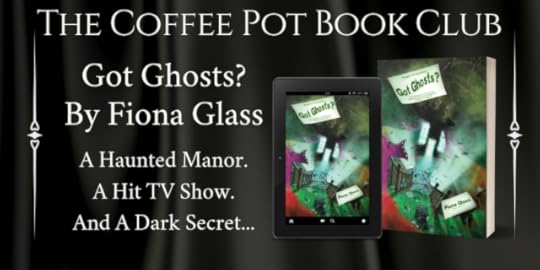
Got Ghosts?
By Fiona Glass
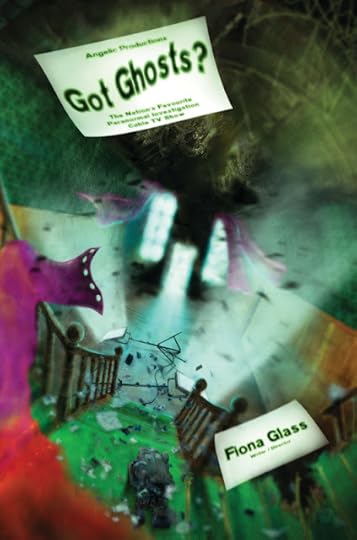
Haunted manor house Greystones Hall is filled to the brim with ghosts. It’s also falling to bits, and artist owner Emily doesn’t have the money to refurbish the place. When the makers of hit tv show ‘Got Ghosts?’ offer to pay for a weekend’s filming there she jumps at the chance, even though she and her ghostly grandfather Gramps have reservations.
The reservations seem to be misplaced when the film crew swing into action, and producer Carl turns out to be dark, handsome and very available. But Emily soon starts to have doubts about the methods they use, which Carl won’t discuss. Then the show’s resident medium Stella stirs up a new and malevolent spirit, revealing a dark secret at the heart of the house that has been hidden for centuries. And when Emily’s own safety is threatened, together with that of her ghosts and her beloved Gramps, will it be Carl who comes to the rescue, or someone much more unexpected?
Excerpt
"Very interesting," said Stella flatly. "But I think - no ghosts, hmm?" She turned a broad purple back on them and darted off down a side corridor which Emily knew led only to a couple of the smaller bedrooms and the old servants' staircase.
"I don't think you'll find much..." she began, but like a tug-boat once she'd embarked on something Stella seemed to be hard to stop. Forced to follow, still bleating about better places to go, Emily felt faintly aggrieved. Damn it, this was her house. She should be the one giving them a guided tour, not the other way round. The faintest whiff of pipe tobacco tickled her nose and she sighed. Don't worry, Gramps, I'm fine really. And I thought I told you to behave.
Stella had got ahead of them. Hurrying to catch up, she found her in the Small Blue Bedroom (so called for obvious reasons), crouched near the fire and tapping the linen-fold panelling with total concentration. "There is something here. Something behind this wall. Listen." She tapped again, harder, and sure enough the knocking did seem to have a faintly hollow sound.
"I'm not sure...." Emily began, and stopped again, mentally orienting herself to the rest of the house. They were in the north wing; to the left lay the old chapel and to the right a strange void space, which meant that behind this particular wall was the Tudor magnificence of the Queen's Bedroom. Perhaps Stella was better at this than she'd thought. "Oh, you mean the priest's hole," she added. "It was hacked out of the thickness of the wall beside the chimney breast. But you can't get into it from here, the entrance is on the other side."
"I think you will find the entrance was here," said Stella with a determined shake of her head which dislodged the daisies again. "The energy drew me here, to this spot, and I can feel it right through the wall. Here." She bounced to her feet, grabbed Emily's hand and placed it where hers had been. "You feel it too?"
"Um, sorry," said Emily. The faint tingling she could feel was pins and needles from the strength of the grip around her wrist. "I can't feel a thing." She regained possession of her hand before she lost all sensation in her fingertips and tried to rub the afflicted area without anyone noticing.
"There is nothing? Nothing at all?"
"Nope, not a thing. But you could be right about that entrance. We've always thought it was odd for a priest to have to run through a lady's bedchamber to reach his hiding place."
"I am always right." Stella rolled her shoulders in a massive shrug, and set off on the hunt again.
Emily and Carl spent the rest of the afternoon trailing after her like dinghies after a barge. Every now and again they shared a rueful glance, but the longer the trip lasted the more harassed Carl became. He was juggling the notebook and pencil, his phone, tape measure and a small device that measured the levels of light, and struggling to take readings and measurements and photos and notes all at the same time. He also appeared to be less than impressed by the rooms they viewed.
At first Emily thought this was just because of the rush, but gradually the man's lack of enthusiasm became too apparent to ignore. "Am I doing something wrong? Is the house no good after all?" Half of her hoped the answer was 'yes', even while the other half was metaphorically reaching for the Angelic Productions cheque.
"It's not that, Miss Price."
Emily's money-grubbing half breathed a sigh of relief.
"It's just that everything we've seen so far lacks... atmosphere."
They were in the dining room at the time. Emily eyed the stained glass windows, vast refectory table and sixteenth-century tapestries on the walls and said, "Oh?"
"I mean, it's all very lovely, but our viewers prefer something less... grand. Don't you have any dungeons, Miss Price? The viewers love dungeons, or ruined chapels or dark cellars or attics or... well, anything, really, rather than pretty bedrooms done out in chintz."
"Oh," said Emily again. "Well, if it's cellars and attics you want...." Pity you didn't say so when you arrived, she thought, but couldn't bring herself to voice the thought aloud. Heading out of the dining room agains he wrenched open a small but stubborn door that gave onto a precipitous flight of steps. "The cellar's this way. But please be careful - it's very steep and the ceiling's pretty low. You'd better find something to hang on to." For one wild moment she wished that something could be her. Carl was a very handsome man - perhaps more of a yuppie than her usual choice but still attractive enough to send shivers up her spine that had nothing to do with ghosts. Imagine Carl's fingers curling into her own, or the warmth of Carl's palm on her arm, or better yet an arm around her waist. In the event, and with her usual luck, it was Stella who clung to her instead.
At the foot of the stairs she paused, shook off Stella's hand as unobtrusively as she could, and switched on the light. The three stood blinking in the sudden glare like vampires caught out after dawn, and Carl frowned.
"That light's going to have to go. Cellars should be gloomy and full of cobwebs and shadows, not lit up like my local Sainsbury's."
"Sorry," Emily muttered, kicking the bottom step and unleashing a cloud of dust. "There's probably a torch around here somewhere." She was getting rather tired of the constant criticism now. Visitors to her home were usually exclaiming in delight at the wobbly floors and priceless antiques, not carping about a lack of ambience. She smelled tobacco smoke again, more strongly than before, and glanced around in surprise. Gramps never came down here in the normal way of things and she wondered if there was something wrong. Well, more than usually wrong, she corrected herself, and hid a grin.
Carl was examining an old wine rack with more approval than he'd shown for anything so far. "This is more like it," he said happily, waving at the brick vaulted ceiling, and set off down a passage to explore.
Emily was glad that something was right at last, but still hung back. There was an odd atmosphere down here that she'd never noticed in all her trips to re-pressurise the boiler or fetch a bottle of wine. The scent of pipe smoke was suddenly very strong and she could feel a sense of agitation drumming inside her skull. The latter, at least, was explained when Stella, still standing far too close, raised a dramatic hand to her brow in a gesture straight from a bad Fifties film. Emily expected her to say 'Darling, I've just made the most terrible mistake' and was disappointed when all she actually said was, "How peculiar."
Pick up your copy of
Got Ghosts?
Amazon UK • Amazon US • Fox Spirit
Add Got Ghosts? To your ‘to-read’ list on

Fiona Glass
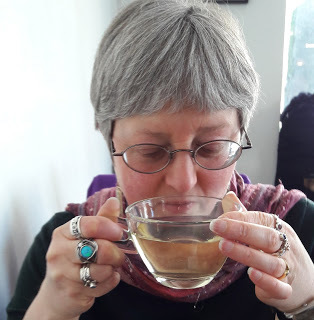
When she isn't being a pane in the glass, Fiona writes darkly humorous paranormal romance, often featuring gay characters and almost always with a twist in the tail. Her short stories have been published in anthologies and magazines including Mslexia, Paragraph Planet, and The Library of Rejected Beauty. She currently has three books available: gay vampire romance 'Echoes of Blood' and gay time-travel romance 'Just Visiting' on Kindle, and paranormal romp 'Got Ghosts?' from Fox Spirit Books.
Fiona lives in a slate cottage within stone-throwing distance (never a good idea in Glass houses...) of England's largest lake with her husband, several pot plants and a vast collection of books. She enjoys history, gardening and photography, and rarely has her nose far from the pages of a book - or a cup of tea.
Connect with Fiona:
Website • Twitter • FacebookCheck out USA Today bestselling and award-winning historical fiction author, Ellie Midwood's fabulous book — Metropolis #HistoricalFiction #1920s
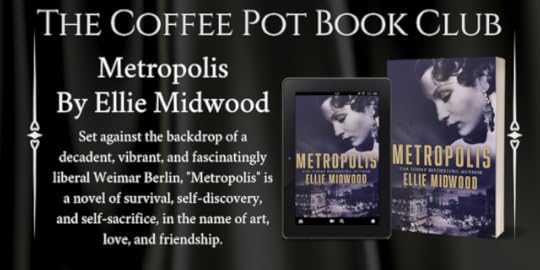
MetropolisBy Ellie Midwood
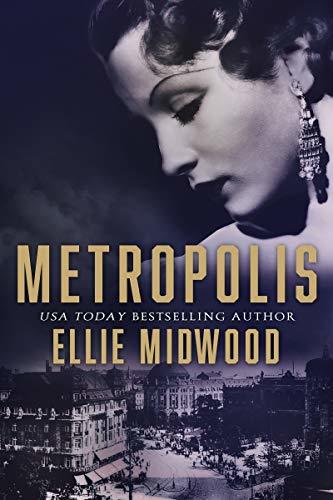
Weimar Berlin, 1924
Unemployed actors, profiteers, cabaret girls, and impoverished aristocracy – out of this wild set of characters populating Weimar Berlin, Margarete Gräfin von Steinhoff belongs to the latter category. Having lost everything due to hyper-inflation, she considers jumping into the freezing waters of the Spree rather than facing the humiliating existence shared by millions of her fellow Germans. However, a chance meeting makes her change her mind at the last moment and offers her a chance to rely on the help of the metropolis itself, where anything can be sold and bought for money and where connections are everything. The bustling nightlife of cosmopolitan Berlin, with its casinos and dance halls, brings good income for the ones who don’t burden themselves too heavily with morals.
After a New Year’s Eve party, Margot finally meets her ever-absent and mysterious neighbor, Paul Schneider, who makes a living by producing a certain type of film for his rich clientele. Under his guidance, Margot discovers a new passion of hers – photography and soon, her talents are noticed by the prominent newspaper, Berliner Tageblatt itself. But being an official photographer of the most celebrated events of the La Scala and most famous Berlin theaters no longer satisfies Margot’s ambitions. As soon as the chance presents itself for her to get involved with the cinematography on the set of "Metropolis" - the film with the highest budget ever produced by the UFA – Margot jumps at it, without thinking twice. At the same time, Paul becomes involved with a rival project, "The Holy Mountain," which stars an as yet unknown actress and an emerging director in, Leni Riefenstahl. As the two women meet, professional rivalry soon turns into a true friendship, fueled by their passion for cinematography. However, due to the economic woes facing Germany, both projects soon run out of money and now, both film crews must go to extreme lengths to save their respective productions.
Set against the backdrop of a decadent, vibrant, and fascinatingly liberal Weimar Berlin, "Metropolis" is a novel of survival, self-discovery, and self-sacrifice, in the name of art, love, and friendship.
The Coffee Pot Book Club
★★★★★
Highly Recommended
Read the full review HERE!
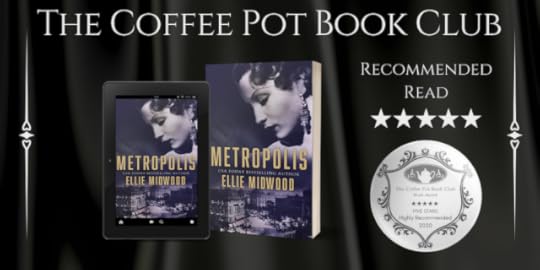
Pick up your copy ofMetropolisAmazon UK • Amazon US
Ellie Midwood
 Ellie Midwood is an award-winning, best-selling historical fiction writer. She's a health-obsessed yoga enthusiast, a neat freak, an adventurer, Nazi Germany history expert, polyglot, philosopher, a proud Jew, and a doggie mama.
Ellie Midwood is an award-winning, best-selling historical fiction writer. She's a health-obsessed yoga enthusiast, a neat freak, an adventurer, Nazi Germany history expert, polyglot, philosopher, a proud Jew, and a doggie mama.Ellie lives in New York with her fiancé and their Chihuahua named Shark Bait.
Awards:
Readers' Favorite - winner in the Historical fiction category (2016) - "The Girl from Berlin: Standartenführer's Wife"
Readers' Favorite - winner in the Historical fiction category (2016) - "The Austrian"(honorable mention)
New Apple - 2016 Award for Excellence in Independent Publishing - "The Austrian"(official selection)
Readers' Favorite - winner in the Historical fiction category (2017) - "Emilia"
Readers' Favorite - winner in the Historical fiction category (2018) - "A Motherland's Daughter, A Fatherland's Son"
The Coffee Pot Book Club Book Of The Year Award – winner in the Modern History category (2019) –"Auschwitz Syndrome: a Holocaust novel based on a true story (Women and the Holocaust Book 3). "
Connect with Ellie:
Website • Amazon • Goodreads • BookBub • Facebook.
Welcome to Day #1 of the blog tour for The Devil's Crossing by Hana Cole #HistoricalFiction #TheDevilsCrossing #CoffeePotBookClub @hanascribe
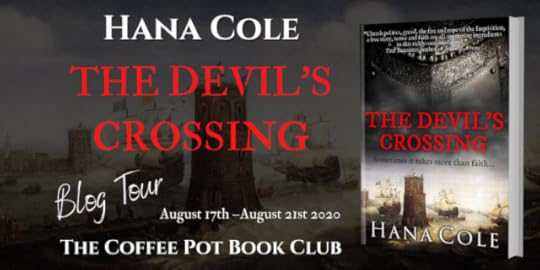
The Devil's Crossing
By Hana Cole
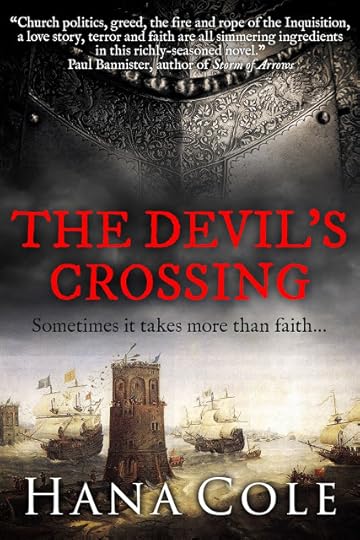
1212. The Chartrain, France.
Gui is a troubled priest who has been shielding his secret family for years.
Agnes, his beloved, is a falsely-accused heretic he rescued from the Inquisition’s pyre.
Their son Etienne, unaware of his father’s true identity, is coming of age. Tired of his lowly shepherd’s life, he seeks adventure. The Crusade is the perfect opportunity to prove himself to the world. He has no reason to suspect the men offering him passage overseas are not what they seem.
Discovering that Etienne has been sold into slavery, Gui and Agnes set off to find him. If Gui is ever to tell his son the truth, he must give up his comfortable compromises and fight the battle of his life against the institution he has served devoutly.
Meanwhile, Agnes guards a secret of her own; she must face her past in a confrontation with the venal Amaury, Lord of Maintenon, that will either set her free or claim her life.
If they are to save their son and expose the slave trade, they must risk everything to overcome the powerful enemies who will stop at nothing to protect their positions and silence them.
We are taking a sneak-peek between the covers of The Devil’s Crossing over on The Historical Fiction Blog.
Click HERE!
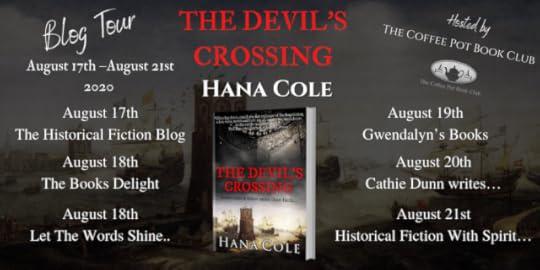
Welcome to Day #3 of the blog tour for The Promise #HistoricalRomance #WW2 @KathleenHarrym1
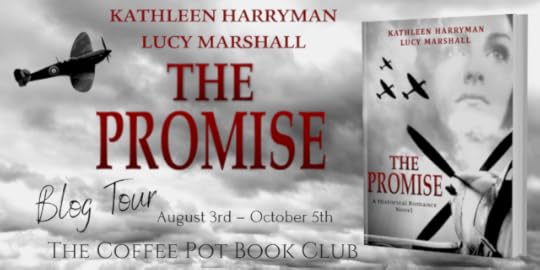
The Promise
A World War II Historical Romance
By Kathleen Harryman and Lucy Marshall
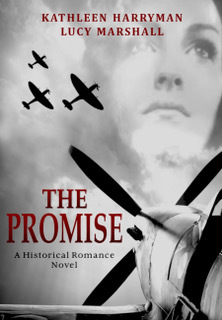
How far would you go to keep a promise?
In the heat of battle, one man's promise to another will be tested.
September 1939
As Britain is gripped by the fear and uncertainty of war, Tom Armitage stands to gain the one thing that he never thought possible - his freedom.
Rosie Elliot sees her future crumbling to dust as Will Aarons leaves Whitby with Jimmy Chappell to fight in the war. As she begins work at The Turnstone Convalescent Home, Rosie finds something she thought she had lost. Friendship. But friendship soon turns to love. Can this new love replace Will?
This is not an ordinary love story.
It's a story of love, loss, courage, and honour.
Of promises that must be kept or risk losing everything you've ever held dear.
Today we are stopping over on Sylv.Net for a sneak-peek between the covers of The Promise.
Click Here!

August 16, 2020
Book Review — Drake - Tudor Corsair (The Elizabethan Series Book 1) By Tony Riches #HistoricalFiction #Tudors @tonyriches
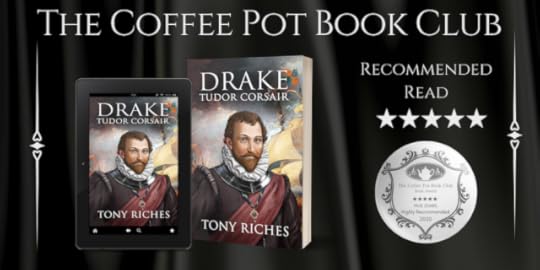
Drake - Tudor Corsair
(The Elizabethan Series Book 1)
By Tony Riches

1564
Devon sailor Francis Drake sets out on a journey of adventure.
Drake learns of routes used to transport Spanish silver and gold, and risks his life in an audacious plan to steal a fortune.
Queen Elizabeth is intrigued by Drake and secretly encourages his piracy. Her unlikely champion becomes a national hero, sailing around the world in the Golden Hind and attacking the Spanish fleet.
King Philip of Spain has enough of Drake’s plunder and orders an armada to threaten the future of England.

‘Do you have any idea, Captain Drake, of the difficulty your adventuring,’ he made the word sound disparaging, ‘causes your country?’
He may have had an inkling, but El Draque was not quite finished with his game of cat-and-mouse with the Spanish. And besides, he had the Queen’s favour, and there were still kingdoms to be discovered and treasures to be claimed, or taken, whichever came first was of no consequence.
Sir Francis Drake had salt running through his veins, and he never felt more alive as he did when he was sailing in uncharted waters. The money and the fame were an added incentive to leave the safety of the harbour and the woman he loved.
However, despite his success, despite his rise in station, Sir Francis would never quite be one of them. For the aristocracy had very little patience with this Devon nobody.
But when England’s sovereignty is threatened, it will take more than a stirring speech from the Queen, to deter Spain’s Great Armada. What England will need is her greatest Naval officer…
From a young man’s dream of adventure to the making of one of the most infamous naval officers of all time, Drake - Tudor Corsair (The Elizabethan Series Book 1) by Tony Riches is the utterly enthralling rags-to-riches story of Sir Francis Drake.
I was so looking forward to reading this book, not only because Tony Riches is one of my favourite Historical Fiction authors, but because I have never come across a book in which Sir Francis Drake does not take second place to the illustrious Virgin Queen, Elizabeth I. Drakes story is one that has been overlooked for far too long, and I am glad that Riches has decided to give his readers an insight into this man’s life, and also an insight into what life was like for sailors during this age of discovery.
With lavish attention to detail and a historical appreciation of the period, Riches has given his readers a book that is rich in historical detail. His understanding of the political landscape of the period is etched within the most exquisite sentences. We witness the taut relationship between England and Spain who spend the entirety of this novel, either trading with each other, stealing from each other, and finally, of course, going to war with each other. Likewise, Riches understands the workings of these greatly majestic sailing ships that paved the way for exploration, exploitation, and the expansion of an empire. No one could have written this book with more emotion, passion, excitement, and historical accuracy than Riches has.
The sweeping narrative, the poetic prose and the vivid sense of time and place made this story not only a gripping read, but it really did feel like I had been transported back in time. The setting was so vivid that I fancied I could feel the rolling deck under my feet. I could hear the splash of the waves as it crashed against the bow of the ship. This is a book that fooled my senses into believing that what I was reading was actually happening, and that is something that I always look for in a novel. I want to not only read a great story, but I also want to experience it, and Riches has delivered such a book, as he always delivers. I did not read this book — I lived it!
Riches has given his readers a very insightful, sincere portrayal of Sir Francis Drake. In this story, Drake is astoundingly ambitious, and this ambition is what drives him to achieve the wealth and recognition that he so desires. In a period where breeding and bloodlines meant everything, Drake must have been like a breath of fresh air, or perhaps more a hurricane to the ordered court of Elizabeth I – how could she have not been drawn towards this charismatic figure who went where angels feared to tread? As history tells us, Drake came from nothing and died a celebrated hero. And yet, despite his success, and despite his fame, he still wanted to be admired by the aristocracy, even though he knew that he would always be looked down upon, and this Riches has explored in mesmerising detail.
However, Riches’ Drake is also something of a contradiction — despite his pirating tendencies, he does not agree with stealing lives and abhors slavery. Likewise, he is more than happy to blackmail and coerce his opponents into doing what he wants them to, but then there is an entirely different side to him that feels guilt, responsibility, compassion and love. Riches’ Drake may act a good game, but underneath the façade, he is, despite appearances, a man of integrity. I thought these contradictions made for some fascinating reading, and I really felt that I had gotten to know a little about the man behind the legend.
If you are looking for your next Tudor fix, then look no further. Drake - Tudor Corsair (The Elizabethan Series Book 1) by Tony Riches is a novel that will enthral you with its brilliance and leave you gasping for more. My only question now is – which historical character will Riches pick to shine a light on in The Elizabethan Series Book 2?
This novel is a definite must, not only for those who enjoy quality Historical Fiction set in the Tudor era but also for those who adored C. S. Forester's unforgettable Hornblower series.
I Highly Recommend.
Review by Mary Anne Yarde.
The Coffee Pot Book Club.
Pick up your copy of
Drake - Tudor Corsair
Amazon UK • Amazon US • Amazon CA • Amazon AU
Add Drake - Tudor Corsair to your ‘to-read’ list on

Tony Riches

Tony Riches is a full-time UK author of best-selling historical fiction. He lives in Pembrokeshire, West Wales and is a specialist in the history of the Wars of the Roses and the lives of the early Tudors. Tony’s other published historical fiction novels include: Owen – Book One Of The Tudor Trilogy, Jasper – Book Two Of The Tudor Trilogy, Henry – Book Three Of The Tudor Trilogy, Mary – Tudor Princess, Brandon – Tudor Knight and The Secret Diary Of Eleanor Cobham. For more information about Tony’s books please visit his website tonyriches.com and his blog, The Writing Desk and find him on Facebook and Twitter @tonyriches
Have a sneak-peek between the pages of Jenni Fletcher's fabulous book — Redeeming Her Viking Warrior (Sons of Sigurd Book 4) #HistoricalRomance #Vikings @JenniAuthor
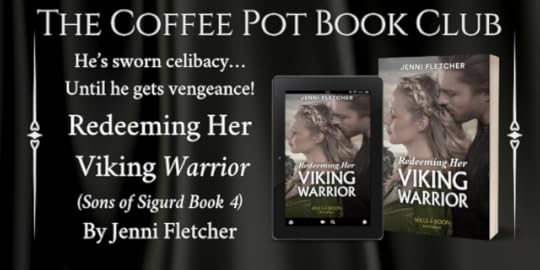
Redeeming Her Viking Warrior
(Sons of Sigurd Book 4)
By Jenni Fletcher
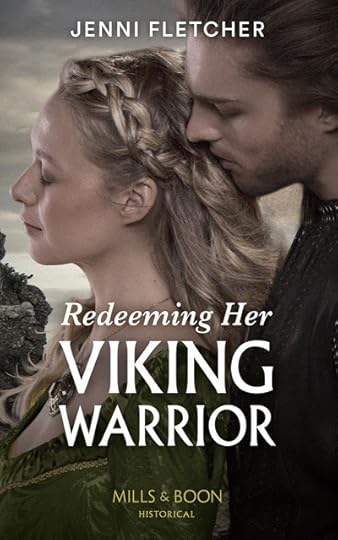
He’s sworn celibacy…
Until he gets vengeance!
Danr Sigurdsson is indebted to the captivating, mysterious healer living alone in the wilderness who carefully tends his wounds. Consumed with anguish over the massacre that killed his family, Danr has sworn not to touch another woman until he finds those responsible. So resisting Sissa should be easy, but as they search for the truth, fighting their mutual attraction becomes the hardest battle…
Excerpt
The woman appeared out of nowhere. One moment Danr Sigurdsson was alone, his body cradled amid the tangled roots of an oak tree, the next she was looming above him, the spear in her hand pointing straight at his throat.
He stared up at her, absently wondering who she was and where she’d come from, then gave up the effort and closed his eyes. His head and chest were throbbing. So, too, was his pulse, so hard and fast it felt as though his heart were trying to force its way through his ribcage.
Considering how much blood he’d lost over the past few hours he was surprised it could still summon the strength to beat at all, but at least the pain in his arm was fading to numbness now. If he kept still, he could almost forget the angry, red gouge where the blade had caught him, slicing through skin and muscle and tendon. If he didn’t move at all, scarcely allowing himself to breathe, in fact, he could forget almost everything.
The rustle of leaves overhead had already faded to a dull murmur and the light behind his eyelids was dimming, narrowing around the edges like a tunnel collapsing in on itself, enveloping him in darkness.
Something prodded his neck and he prised his eyelids open again. It was the woman, the blunt edge of her spear nudging lightly against his skin. What did she want? Was she threatening him? If she was, then she didn’t need to. At that moment he couldn’t have put up a fight with a kitten.
The very air felt heavy, pinning him to the ground as if there were a fallen tree lying across his chest. He was going to die whether she impaled him or not and he wasn’t going to protest either way. Perhaps it was best that she went ahead and put him out of his misery quickly. He would have failed his brothers—again—but at least it would have been while trying to fulfil his oath.
He curled the fingers of his good arm around the hilt of his sword, Bitterblade, determined to die like a warrior even if he couldn’t fight back, but the woman didn’t move as much as a muscle. As far as he could tell, she didn’t even blink. He felt a flicker of unease, wondering if she were some figment of his imagination or apparition. She looked like one, her narrow, expressionless face streaked with grey smudges while her hair tumbled in such wild, half-braided, half-loose disarray that it resembled a cloak of golden hay around her shoulders. She was a lot like a spear herself, he thought, sleek and slender with a flat chest and shoulders the same width as her hips, though he hated himself for noticing. Apparently it was true what Rurik had always said: Danr would still be looking at women on his deathbed… Well, here he was on it now, though perhaps it was only fitting. A woman had brought him into the world, albeit reluctantly, and now a woman was going to take him out of it. It would be a fitting revenge for all the ones he’d known and discarded in between.
He waited, feeling increasingly uneasy beneath her silent scrutiny. Even from where he lay on the ground he could see that her eyes were pale and striking, like oyster pearls, mirroring the sky behind her head, an iridescent grey speckled with flakes of silver that looked a lot like…snow?
Somehow he dragged a laugh up out of his chest. This was truly the end, then. He hadn’t even realised that it was cold enough—or late enough in the year—for snow, though now he thought about it he could see whispery coils of air emerging from his mouth. From hers, too, which at least proved she was a real flesh-and-blood woman, no matter how spectral she seemed. Snow was filling the air all around them, covering his broken and bloodied body in a gauzy white layer. After everything that he and his brothers had gone through, after they’d travelled so far and fought so many enemies from Maerr to Eireann to Constantinople to Alba, now he was going to die here in a forest all on his own and be buried in snow. His body would probably lie where it was for months, encased in ice, refusing to rot away until spring. Maybe Hilda would be the one to eventually find him and know that she’d won.
He gave a grunt of disgust and then froze, the hairs on the back of his neck rising at the sound of an answering growl. With an effort he lifted his head, his already pounding heartbeat redoubling in speed at the sight of a wolf—no, two wolves—stalking through the undergrowth towards him, their teeth bared in twin snarls, no doubt drawn by the scent of his blood.
Quickly he shifted his gaze back to the woman, trying to convey a warning with his eyes since his throat was too dry to speak, but she appeared not to notice, her expression unreadable as the wolves came to stand on either side of her like a pair of dark sentinels. Maybe she really was an apparition after all, Danr thought with a shudder, an unforgiving ice maiden like the ones of which his mother had told him and Rurik as boys, a supernatural force able to control the animals of the forest as well as the elements. If she were, then he was entirely at her mercy. She could do whatever she wanted and there was nothing he could do to stop her.
He swallowed, waiting for her to decide his fate. At least a spear would be quick, whereas being torn apart by wolves… Surely not even he deserved that?
Did he?
He dropped his head back to the ground and closed his eyes for a few seconds, feeling the kiss of cold flakes on his lids and lashes, but when he opened them again she was gone and the wolves were nowhere to be seen. All he could see was snow.
Pick up your copy of
Redeeming Her Viking Warrior
Add Redeeming Her Viking Warrior to your ‘to-read’ list on

Jenni Fletcher

Jenni Fletcher was born in Scotland and now lives in Yorkshire, where she writes historical romance novels from the Roman to Victorian eras. She studied English at Cambridge University before doing a PhD on Edwardian literature at Hull. She then worked in a variety of administrative jobs while trying to finish her first book, which was rejected. Fortunately, she then wrote another, which was accepted by Harlequin Mills & Boon
She teaches Creative Writing at Bishop Grosseteste University and has been nominated for 4 RoNA awards (for Historical and Short Fiction), and won the Libertà Award for Short Romantic Fiction in 2020. Her favourite Jane Austen novel is Persuasion and her favourite Brontë is Anne. If she had to choose a romantic hero it would be John Thornton, possibly just because she’s Northern.
Connect with Jenni:
Check out Tony Morgan's fabulous book — The Pearl of York, Treason and Plot #HistoricalFiction @tadmorgans
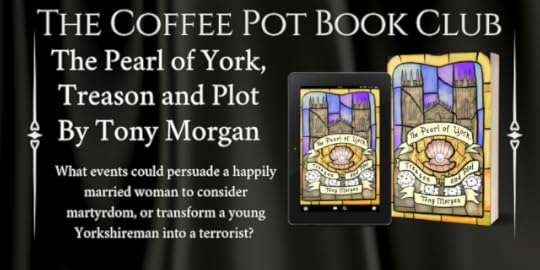
The Pearl of York, Treason and PlotBy Tony Morgan
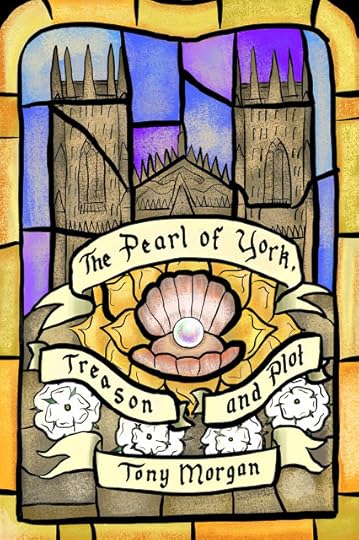
A gripping historical novel, perfect for the lovers of CJ Sansom and SJ Parris, set in the atmospheric streets and buildings of Tudor York. When Margaret Clitherow is arrested for illegally harbouring Catholic priests in The Shambles, her friends, led by a youthful Guy Fawkes, face a race against time to save her from the gallows. As events unfold, their lives, and our history, change forever. Margaret, known as the Pearl of York, and Guy, famous for his role in the Gunpowder Plot, were raised by prosperous Protestant families. Both became Catholic enemies of the state. What events could persuade a happily married woman to consider martyrdom, or transform a young Yorkshireman into a terrorist?
The Coffee Pot Book Club
★★★★★
Highly Recommended
Read the full review HERE!
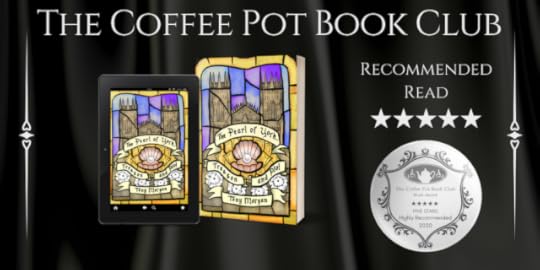
Pick up your copy ofThe Pearl of York, Treason and PlotAmazon UK • Amazon US
Tony Morgan
 Tony Morgan is a Welsh author and university academic. He lives in North Yorkshire, near to the birthplace of Guy Fawkes and Margaret Clitherow. In addition to writing historical novels, Tony also gives history talks covering the events of the Gunpowder Plot and Margaret Clitherow’s life. To date, all profits from his novels and talks have been donated to good causes. In 2020, Tony’s supporting St Leonard’s Hospice in York. For more details, visit Tony’s website.
Tony Morgan is a Welsh author and university academic. He lives in North Yorkshire, near to the birthplace of Guy Fawkes and Margaret Clitherow. In addition to writing historical novels, Tony also gives history talks covering the events of the Gunpowder Plot and Margaret Clitherow’s life. To date, all profits from his novels and talks have been donated to good causes. In 2020, Tony’s supporting St Leonard’s Hospice in York. For more details, visit Tony’s website.August 13, 2020
Join me in conversation with Historical Fiction author, Judith Arnopp #HistoricalFiction #Tudors #Anthology @JudithArnopp @SharpeBooks
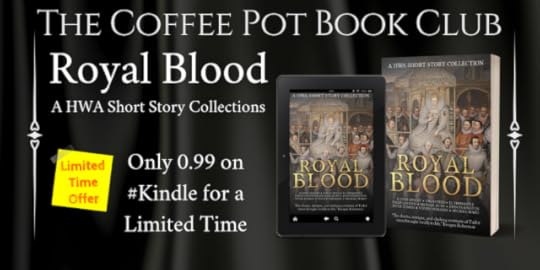
A Conversation with Historical Fiction author, Judith Arnopp
Please give a warm Coffee Pot welcome to Historical Fiction author, Judith Arnopp.
Mary Anne: A huge congratulations on the release of Royal Blood: A HWA Short Story Collection. Could you tell us how you got involved in this fabulous collection of short stories?
Judith Arnopp: Hi Mary Anne, Thank you for inviting me on to your blog. The anthology is a collection of short stories set in the Tudor period written by David Field, Elizabeth Fremantle, Michael Jecks, Steven Veerapen, Peter Tonkin, Philip Gooden, John Pilkington, Michael Ward and me. All nine authors are thrilled with the success Royal Blood is enjoying. Sharpe Books already publish two of my twelve novels, Intractable Heart: the story of Katheryn Parr and The Kiss of the Concubine: the story of Anne Boleyn so when they approached me to be part of this project, I knew right away what I’d write and who I’d write about.
Mary Anne: All the stories in this collection are set during the Tudor era. Why do you think this period in history is still really popular with readers?
Judith Arnopp: I have loved the Tudors all my life. I can still just about recall how amazing the story of Henry and his wives was to me during my early teens. When the serious study came later, I found the Tudor world just kept giving. The fact that I am able to write about and attract new people to the royal court is still unbelievable. I think the era draws newcomers into history. It was certainly so for me. The Tudors have it all: romance, intrigue, passion, betrayal, treason and of course, a whole lot of horror which we all love.
I find it very satisfying when I introduce a young person to Henry and his wives. The stories are new to them and they have no idea of the years of pleasure ahead. I love to see the animation in their faces as they tell me what they’ve learned so far.
The Tudors are a gift for an author – it was a time of so much social change and there are many different perspectives and paths to follow: male, female, catholic, protestant, I could go on but lists are tedious.
There are those who complain the Tudors have been done to death but there will always be a new generation coming along for whom the 16th century is new and exciting. For me, Royal Blood is made special by the diversity of style: different authors, different genders, different points of view, different characters. Royal Blood is like a selection box of Tudor England that contains everyone’s favourite story.
Mary Anne: Your story in this fabulous collection, No Other Will Than His, is about Katherine Howard. As I am sure many readers will know Katherine Howard’s story has a very tragic ending. Why did you choose to write about the fifth wife of Henry VIII?
Judith Arnopp: I’ve written about most of Henry’s wives already, also his grandmother, mother and daughter Mary, but although she appears in one of my books, Katherine Howard has escaped my full attention. Now, having written, No Other Will Than His, I think she may find herself the subject of one of my novels quite soon. She is a fascinating woman.
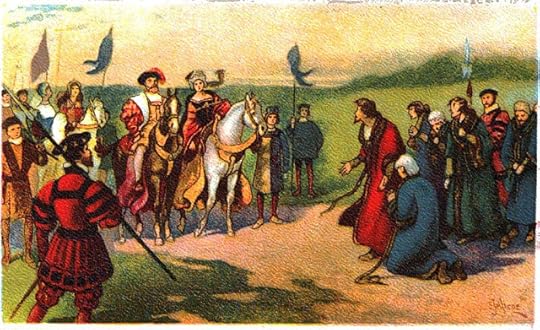
As with every aspect of history, there are differing opinions on her true nature. Some see her as an innocent young girl whose abused childhood made her an easy target for Norfolk's political manoeuvres. For others, she was a woman of loose morals who knew exactly what she was taking on. We will never know the full truth; we never know the full truth of anything.
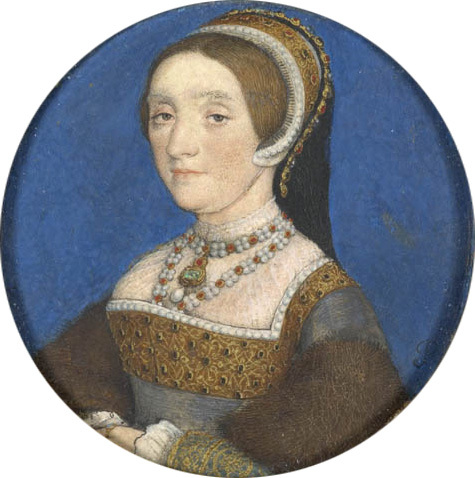
In No Other Will Than His I have taken the middle road, a mix of recorded history, myth and imagination. Katherine is a victim of abuse, relatively uneducated, enamoured of pretty things and lured into the royal marriage by the promise of riches rather than power. She seems to have been content enough at first, an old man's darling enjoying her new status but totally out of her depth politically. It is only when she becomes involved with the unscrupulous Culpepper that she realises she cannot remain faithful to the ageing Henry. Whether her lover, Tom Culpepper, was the romantic young lover often depicted in fiction or the corrupt rogue that historical research suggests, Katherine seems to have loved him.
I’ve often wondered how Katherine felt about stepping into her dead cousin’s shoes. She must have thought about her. She was an adolescent at the time of Anne's execution but the scandal and speculation about her life and death would have continued to circulate. Perhaps Katherine saw Anne as an innocent victim, perhaps she believed the allegations of treason and incest but surely, at some point leading up to her marriage to Henry, Katherine thought about Anne and wondered what her own future held.
People of the Tudor age were far more familiar with death than we are today. Our expectation is to live to old age but in the Tudor era infant death, death in childbirth, death from contagion was commonplace. Judicial death was also normal but the execution of an anointed queen is something peculiar only to Henry VIII’s reign.
In my story, Katherine is inured to violence. She has grown up with it. She believes unquestioningly in God and an afterlife. As was the case with so many others, her faith enables her to face death with a maturity and courage she lacked in life.
I saw a pig slaughtered in the farmyard once. The butcher struck the sow on the head before hoisting its prone body on a rope. I peeked around the corner of the barn as he slit its throat, and I saw the blade of the knife slicing through the thick, rubbery skin as if it were butter. Crimson blood oozed into a bowl and when the body was empty, the wound gaped wide, like a screaming mouth. The butcher turned the corpse into chops and sausages but the mangled body of my cousin was hurriedly squeezed into an old arrow chest, her intelligent head shoved beneath her arm.
Despite the negative aspects of Katherine’s life and personality it cannot be disputed that although she was half her cousin’s age she faced execution as bravely as Anne Boleyn.
Mary Anne: What do you think is the most challenging aspect of writing Historical Fiction?
Judith Arnopp: The research. I spend months reading up on the subject, trying to make some order of the differing records, opposing accounts, contrasting opinions. I have to be aware of them all but when I begin to write I put all research aside and allow my character to relate their own story. It is rather as if they are giving evidence, explaining the whys and wherefores.
It is a constant battle between the fictional character wanting to do one thing while history dictates they must do another - this is where the character’s own opinion comes in. We know from history that they took a certain action but history can never fully explain why they might have taken it. It is all open to supposition.
Mary Anne: What advice do you have for aspiring Historical Fiction authors?
Judith Arnopp: I am tempted to say ‘don’t do it’ but if they have the heart and the thick skin to cope with the sometimes rather cruel criticism then that would be the wrong advice. I’d suggest they research thoroughly and keep as true as possible to the historical record; if they wander from the record then be sure to add an author’s note pointing out where and why.
My number one negative thing about HF, and the thing that will make me stop reading a book, is the demonization of historical figures. Take Henry VIII for example. Some of Henry’s acts were undoubtedly brutal, or they seem so today, but that doesn’t mean he was a monster – monsters don’t exist. They never have done. People do bad things. Rather than making your characters pantomime villains, dig a little deeper and consider how and why they became a ‘bad’ person.
I have no love for Henry VIII but I feel as an author I have to remain objective. I put aside my preconceptions. To my surprise Henry emerges as more tragic than evil. He was human and like all of us, he was flawed. He tried desperately to be the man and king his father and grandmother trained him to be. He needed strong sons but his failure put the Tudor dynasty at risk. With just one small boy to follow him, Henry knew from experience (the sudden death of his older brother Arthur) that one son wasn’t enough. When the sons failed to appear he grew desperate to secure his dynasty and in doing so struck out at those he loved. He killed his friends, men he’d looked up to all his life, the woman he had fought for seven years to possess and he brought down the church he once championed. The older and sicker and more desperate he became the worse his acts grew. It is a horrible thing to recognise failure in oneself and Henry, once so full of potential, died in the knowledge that he had failed in his primary duty as king. He had let the side down.
So in short, when writing about a known historical figure, try to worm your way into their minds and discover a human being instead of a cardboard cut-out. The result will be far more interesting.
Also please hire an editor. So many potentially great books are ruined by sloppy editing.
Mary Anne: Thank you so much for taking time out of your day to chat with us!
Royal Blood
A HWA Short Story Collection
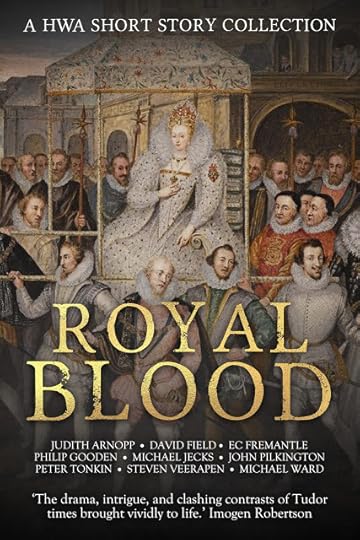
‘The drama, intrigue, and clashing contrasts of Tudor times brought vividly to life.’ Imogen Robertson
Immerse yourself in the Tudor period through a diverse collection of informed and entertaining short story narratives.
Read about some of your favourite characters from established series, or be introduced to new writers in the genre.
The stories in Royal Blood bring the Tudor era richly to life, presenting suspense, rivalry, espionage and historical drama.
This stunning new collection, brought to you by the Historical Writers' Association, also includes interviews with each author.
Find out more about their writing processes and what attracts them to the Tudor world.
Royal Blood is a must read for all fans of historical fiction.
Pick up your copy of
Royal Blood:
A HWA Short Story Collection
for only 0.99 on #Kindle for a Limited Time
Add Royal Blood to your 'to-read' list on

Authors and Stories Featured in Royal Blood:
Judith Arnopp – ‘No Other Will Than His’ Katherine Howard
David Field – One for the Road
Elizabeth Fremantle – The Sum of Me
Philip Gooden – Exit Ghost
Michael Jecks – The Earl’s Purse
John Pilkington – A False Hawksman
Peter Tonkin – A Palpable Hit
Steven Veerapen – Lantern and Light
Michael Ward – The North-East Passage
Historical Fiction author, Rachel Wesson, new book — A Home For Unloved Children — is now available for pre-order! #HistoricalFiction @wessonwrites
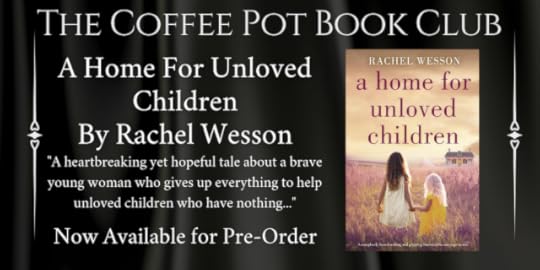
A Home For Unloved Children
By Rachel Wesson
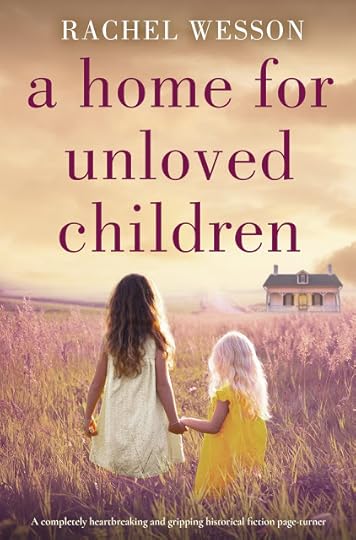
Her heart broke as she took in the scene before her. There were too many orphans and not enough beds. The rags they wore barely covered them and they hadn’t eaten in days. How could anyone let innocent children live like this? She picked up a tiny baby who’d cried as she moved past his cot. “I’ll be back soon, little one.”
Virginia, 1933: Lauren Greenwood was born to look pretty and land a rich husband. For her and her high-society family, it’s easy to forget that America is in the devastating grip of the Great Depression, where children run wild in the streets, endless queues for soup kitchens line sidewalks, and desperation hangs in the air.
But when a young servant comes to Lauren, pregnant and begging for help, her world crumbles. Someone she loves is responsible, and when she finds out the shocking truth she must decide: protect the Greenwood name or be cast out?
When the servant girl is thrown mercilessly into the street, Lauren knows what choice to make. Suddenly she is homeless and without a penny to her name––utterly broken by her family’s betrayal.
With nowhere else to go, Lauren takes the servant to a home for unwanted children. She is appalled to find orphans living in squalid conditions, their hunger keeping them awake and making them too weak to even play. The orphanage is on the brink of closure––and those it shelters may lose the roof over their heads…
Yet Lauren refuses to allow such suffering. And when she sees an advertisement in the local newspaper, with an anonymous benefactor promising to donate money to families crippled by the Depression, it could be the answer to her prayers. Can she save the orphans––and her new home––in time for Christmas?
A heartbreaking yet hopeful tale about a brave young woman who gives up everything to help unloved children who have nothing. Fans of Before We Were Yours, The Orphan Train and Diney Costeloe will adore this poignant historical novel, which shows that a little bit of kindness can go a long way.
Pre-order your copy of
A Home For Unloved Children
Amazon • Apple Books • Kobo • Google
Released on October 26th 2020
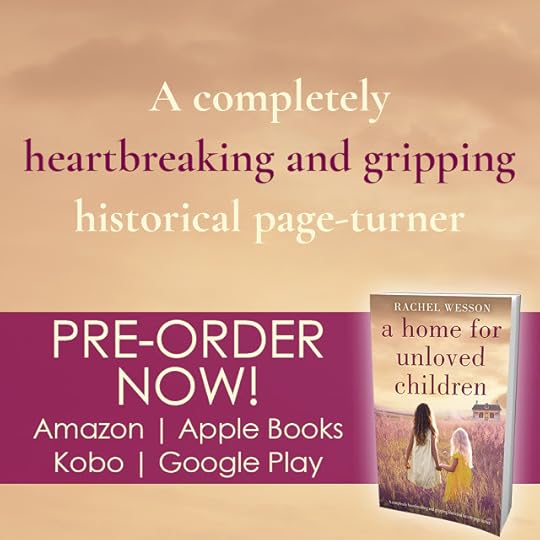
Rachel Wesson

Rachel Wesson is the author of several best selling series including her latest based on the Orphan Trains. Having always been a fan of history, Rachel tries to combine her love of history with a good story.
Rachel Wesson was born in Kilkenny, Ireland but considers herself to be from the capital, Dublin as that’s where she spent most of her life. Her dad brought Rachel and her two sisters out every Saturday to give their mother a break. He took them to the library and for ice-cream after. It took a long time for her sisters to forgive her for the hours she spent choosing her books!
She grew up driving everyone nuts asking them questions about what they did during the War or what side they were on in the 1916 rising etc. Finally her Granny told her to write her stories down so people would get the pleasure of reading them. In fact what Granny meant was everyone would get some peace while Rachel was busy writing!
When not writing, or annoying relatives, Rachel was reading. Her report cards from school commented on her love of reading especially when she should have been learning. Seems you can't read Great Expectations in Maths.
After a doomed love affair and an unpleasant bank raid during which she defended herself with a tea tray, she headed to London for a couple of years. (There is a reason she doesn’t write romance!). She never intended staying but a chance meeting with the man of her dreams put paid to any return to Ireland. Having spent most of her career in the City, she decided something was missing. Working in the City is great but it’s a young person’s dream. Having three children you never see isn’t good for anyone. So she packed in the job and started writing. Thanks to her amazing readers, that writing turned into a career far more exciting and rewarding than any other.
Rachel lives in Surrey with her husband and three children, two boys and a girl. When not reading, writing or watching films for “research” purposes, Rachel likes to hang out with her family. She also travels regularly back home – in fact she should have shares in BA and Aerlingus.
Connect with Rachel:
The Coffee Pot Book Club
...more
- Mary Anne Yarde's profile
- 159 followers



